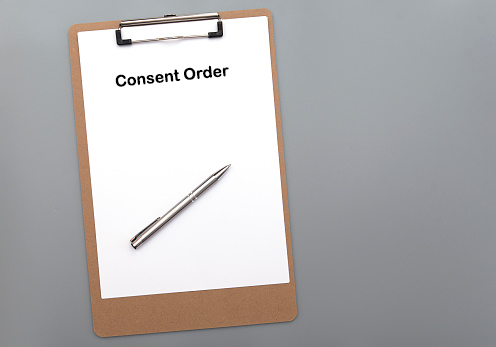Once you have separated from the child’s mother, it can be difficult to feel as though you are being kept in the loop about major things in your child’s life. To stay informed about their child, it is often best for fathers to gain access to the child’s medical and educational information. It is common for the father to be the non resident parent and so it’s usually the mother who is the main point of contact for the school or doctor’s. This can mean that the father misses out on important information about their child. If you are a father who feels as though he is being excluded from this vital information, this guide will help you to understand your rights and how to exercise them.
Contact Your Ex
We have covered several articles about communication with your ex. Although it is difficult at times to communicate amicably, it can help you to keep things civil if you approach your ex first. Explain that you want to stay involved with your child’s education and wellbeing and explain that you would like to have access to the same medical and educational information as they do. If your ex agrees, you will find that it is a far more simple process as she will just be able to send you copies of everything she gets or she may talk to the school. This will save a lot of work on your side as well as keeping things friendly between the two of you.
Of course the other parent isn’t always so keen to agree to your requests so in that scenario, there are things that you can do. First of all, you need to ensure that you have parental responsibility. If you have it, you will be able to ask the relevant authorities for this information and they should provide it to you.
Medical Information
If your ex has refused to share information about your child with you and you have determined that you do indeed have Parental Responsibility, you should contact your child’s doctor’s surgery. You need to explain to them that you have parental responsibility for your child and that you have the right to health information about your child.
Your child’s surgery may request to see proof that you have parental responsibility for your child. Try not to see this as the surgery being awkward. They have a legal obligation to uphold the law about confidentiality of patient records. They will need to see proof that you hold parental responsibility so that they can be sure that they are providing you with information that you are entitled to have.
If Your Are Refused This
If you have proof that you have parental responsibility but the practice is still not being forthcoming with the information that you are requesting, you are entitled to make a complaint. You should ask how to make a complaint or even ask to speak to the General Practice Manager.
If the Practice Manager is also not helpful or if your complaint isn’t dealt with appropriately, you can then contact the Health Authority or Information Commissioner. They should be able to help you to access your child’s medical records.
When You Don’t Know Which Practice Your Child is Registered With
Sometimes, you are not informed of which practice your child is registered with. If this is the case, you will be able to write to the Area Health Authority who will be able to tell you which practice your child is registered with. You will need to provide them with proof of Parental Responsibility in order for them to deal with your request.
Once you have found out the details of the practice, you will then be able to contact the practice as mentioned above to request information about your child’s medical records.
Schools and Education
If has been confirmed by the Department for Education and Employment that both parents, whether resident or not, have the same rights as each other when it comes to information about your child’s education. As long as no restriction from the court is in place, any parent who has parental responsibility of the child has the right to receive information about their child’s schooling.
You should ensure that you have given the school your address and informed them formally that you wish to be sent all information about your child’s schooling.
Informing The School
The best way to let the school know that you want information about your child’s education is to contact the school directly. You should be as pleasant as possible but be assertive in what you ask for. Make it clear that you are a parent with parental responsibility and that as such you are entitled to receive the same information as the resident parent regarding your child’s education. Inform them that you would like this information to be sent to you promptly at the same time that it is sent to the other parent.
You should submit this request in writing, keeping a copy for your own records. You should also include proof that you have parental responsibility as the school will need this proof in the same way as the doctor’s practice will need it.
The school may ask you further questions about your right to see your child. This may seem a little unfair, but they have a duty to ensure that there is no court order restricting access to information. As long as you have no court rulings against you, the school should ensure that they share with you the information that you’ve requested.
If The School Refuses
Whilst most schools will already have systems in place such as online portals that will automatically share letters and such once you have been confirmed as being a parent with parental responsibility, other schools can be more difficult when it comes to keeping you informed. If you feel that you are being denied access to your child’s school information in spite of providing all the necessary paperwork, you should contact the Local Education Authority where the school is located. You should use the guidance from the Department of Education and Employment and explain that you are not being provided with information that you are legally entitled to despite having no court ruling against you and having proof of your parental responsibility The Local Education Authority should be able to help you to access this information to stay informed about your child’s education.
Choosing A School
Choosing a new school or selecting a school for your child isn’t as simple as picking a school that you or the other parent likes. School selection processes depend on where the resident parent and child lives as well as the popularity of the school. If the resident parent has relocated with your child, you may find that there are not many school that have places if your child is in the middle of a school year. Sometimes, the child has to go to the school where they are placed and there is little that can be done about this. If your ex is considering moving your child against your wishes and you believe that a school change would be detrimental to your child, you can apply for a Specific Issue Order.
Specific Issue Order
Sometimes you can find that you are having too large a disagreement with your ex about your child’s schooling or their general practitioner and you find that those organisations are denying your rights as a parent, you can apply to court for a Specific Issue Order if:
- You want the court to make an order about the way in which your child is being looked after by the other parent.
- You cannot reach an agreement with the other parent about which school your child goes to or which GP they are registered with.
- You fear for your child’s wellbeing.
Whilst courts are there to help you to resolve difficult disputes, you should only turn to the court if you have reached a last resort. Court dealings are stressful for everyone in your family, including your child, not to mention being lengthy putting a strain on your co-parenting relationship.










